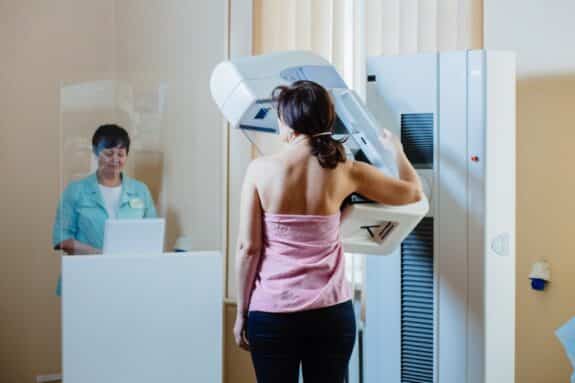Ladies, this is your reminder to schedule a mammogram! According to a recent study published in the Journal of Clinical Oncology, provinces that allow women to undergo yearly breast cancer screenings starting at the age of 40 have significantly higher survival rates compared to provinces that rely on physician-referred screenings starting at age 50.
The study analyzed data from the Canadian Cancer Registry and compared survival rates of women aged 40-49 and 50-59 who were diagnosed with breast cancer between 2002 and 2007. Overall, women in their 40s who had access to screening had a 1.9% higher survival rate for ten or more years compared to those who started screening at 50. Specifically, women aged 45-49 had a 2.6% higher survival rate when screened in their 40s.
Lead author Anna N. Wilkinson, a GP oncologist at The Ottawa Hospital Cancer Centre, highlights that the increase in survival rate is comparable to the improvement seen with the introduction of tamoxifen, a commonly used breast cancer treatment.
Previous research by the team also indicated that provinces without screening for women in their 40s had higher rates of breast cancer in women over 50. Screening in the 40s allows for the detection of pre-cancerous lesions and abnormalities that could become cancerous in the future.
Detecting breast cancer early on is crucial. The five-year survival rate for localized breast cancer is 99%, while it decreases to 86% for regional spread and plummets to 29% for distant spread.
Kimberly Carson, CEO of Breast Cancer Canada, emphasizes that early screening saves lives. Advancements in screening technology, such as more sensitive mammograms, evaluation of MRIs for dense breast tissue, and promising blood tests, facilitate early detection. The use of AI technology is also expected to accelerate advancements in screening and allow for personalized risk assessments.
Understanding the risk of early-onset breast cancer is especially important in diverse communities. Research reveals that Black, Hispanic, and Asian women are more likely to be diagnosed before age 50, and women of African or Asian ancestry are disproportionately affected by aggressive forms of cancer.
The study also found that “self-referral” programs, where women can book screening appointments without a referral, increase survival rates. Removing barriers, such as the lengthy process of finding a doctor and waiting for a referral, is crucial to ensuring wider access to screenings. The ideal scenario would be for women to have the option to directly book screenings, with government reminders or letters.
Additionally, the study is examining the cost of earlier screening. Preliminary results indicate that upfront costs may translate to reduced overall expenditure for treating breast cancer. Treatment costs significantly increase with disease stage, ranging from $15,000 for pre-invasive breast cancer to over half a million for stage 4. However, a mammogram for women in their 40s costs about $2,600.
The findings of this study support the importance of early breast cancer screenings and advocate for improved accessibility and awareness.
Related Articles:







